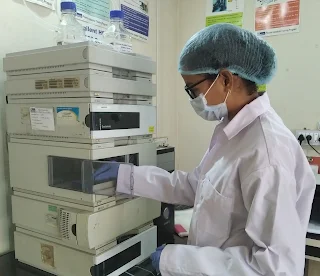 |
| Assura Pharma Training Institute |
A
combination of behavioral and technical questions will be asked during a
Quality Control (QC) department interview in the pharmaceutical business in
order to evaluate your suitability for the position and your qualifications.
In
a quality control interview, you could be asked the following typical
questions:
Technical/Profession-Related
Questions:
1)
How do the tenets of Good Manufacturing Practices (GMP) apply to your position
in quality control?
2)
Which equipment and testing techniques have you used in a quality control
laboratory before?
3)
Tell us about your experience using FTIR, UV-Vis, HPLC, GC, and other
analytical tools that are frequently used in quality control.
4)
How do you go about maintaining and calibrating lab instruments and equipment?
5)
In the pharmaceutical sector, what does a stability study mean, and what role
have you played in conducting one?
6)
What is involved in doing a microbiological limit test and how is it done?
7)
Could you explain the processes involved in a normal drug dissolving test?
8)
What part does a quality control analyst play in making sure pharmaceutical
items are sterile?
9)
Describe how you handle and record findings that are not in line with
specifications (OOS)?
10)
In your QC job, how do you guarantee data integrity and adherence to legal
requirements?
Habitual
Inquiries:
1)
Give an example of a difficult circumstance you faced and how you handled it in
a previous QC position.
2) In a fast-paced quality control setting, how do you prioritize and manage many testing assignments and deadlines?
3)
Could you provide an instance when you found a mistake or inconsistency in the
QC results? What approach did you take?
4)
How do you inform other departments, like Quality Assurance or Production,
about QC findings and results?
5)
Talk about your experience in a QC context working in a cross-functional team
or group.
6)
Describe a situation when you had to adjust to modifications in the
instruments, processes, or testing techniques. What was your approach?
7)
Describe the methods you use to keep the laboratory area neat and orderly so
that contamination cannot occur.
8)
How do you remain current with changes in legislation that affect your QC
function and trends in the industry?
9)
Could you give an instance of how, in a prior position, you contributed to the
efficiency or quality control process improvements?
10)
What appeals to you most about working in quality control, and why would you
like to pursue a career in the pharmaceutical industry?
Conclusion
Be
ready to give precise instances from your prior employment or educational
background to demonstrate your credentials and aptitude for addressing
problems. Customize your answers to highlight your pertinent experience,
meticulous nature, and dedication to excellence—qualities that the QC
department greatly values.
For more information:
Visit our website: https://www.assura.net.in/core-website/admin/register/
Join us on Facebook: https://www.facebook.com/AssuraPharmaTraining
Join us on Instagram: https://www.instagram.com/assurafoundation/
Join us on Youtube: https://www.youtube.com/channel/UC4F5b_iAkwQ1ZrN3GjMLY5A
To Buy Notes: https://www.assura.net.in/buy-notes/
Call or Whatsapp on 9175914123 / 7972910842




